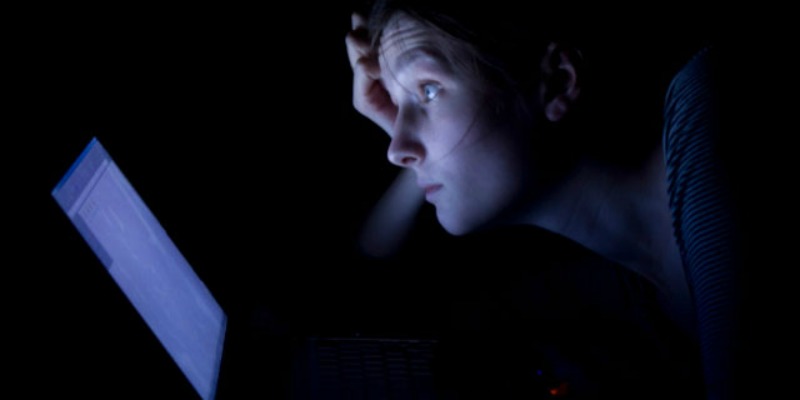“Sleep is the chain that ties health and our bodies together.”
-Griff Niblack
A couple of centuries ago people didn’t know anything about artificial light. Burning candles and going to bed with the sunset was the way of life. The sun was the main source of lighting, and people spent their evenings in darkness. We, on the other hand, take pride in having convenient technology that allows to stay up as late as we want. In fact, the amount of artificial light in the world has tripled since 1970. However, depression, insomnia, the use of prescription sleeping pills, anti-depressants and caffeine has skyrocketed. Is that a coincidence? I don’t think so. According to statistics, 95 % of American people use different types of electronics prior going to bed. Whether it’s watching TV, working on the computer or checking your phone, these activities cause sleep disruption and insomnia which lead to much bigger health problems.
Why Artificial Lights Are Wrecking Your Health
Melatonin Suppression
Research has proven that nighttime exposure to artificial light suppresses the production of melatonin. Melatonin is the main hormone secreted by the pineal gland which controls sleep and wake cycles. In order to stimulate the production of melatonin by the pineal gland, we need darkness. This vital hormone maintains the circadian rhythm of our body. Our bodies function optimally when we are exposed to natural darkness on an internal 24-hour clock. A recent study found that people whose circadian 24-hour is interrupted by artificial light are more likely to get cancer. Natural darkness increases melatonin and protects cells from damage. Melatonin suppression has been linked to cancer, impaired immune systems, type 2 diabetes, metabolic syndrome, obesity and heart disease. (source) You need to make sure you are producing enough melatonin because it is a powerful antioxidant which has positive effects on the immune system and the aging process.
What You Can Do
Here some ways to reduce your exposure to artificial lights:
- Use dim red lights for night lights. Red light has the least power to disrupt circadian rhythm and suppress melatonin.
- Spending a lot of time in the bright light during the day will help you sleep great at night.
- If you must use your computer in the evening, download the free program f.lux. It adjusts the brightness and color temperature of your computer’s display according to the time of day.
- Do not look at bright screens two to three hours before bed.
- Purchase a pair of Uvex Skyper orange tint glasses. They are super cheap, around $10 on Amazon but they block the blue light emitted from all your electronics.
This content will be shown after all post

I just recently learned about the detrimental affects that blue light can have on melatonin production when exposed in evening hours where that spectrum is naturally reduced and eventually not present. Another valuable resource that I would recommend adding to your list is the emergence of a new kind of software that can be easily installed which automatically adjusts the color balance of the devices’ display to reduce the blue light. Google: “F.LUX” (F dot LUX), a free software available for windows, mac, linux as well as iphone/ipad. For Android users (like me), there is a free app called “Twilight” which does the same thing. The cool thing is that it adjusts the color change fluidly over time, not just on/off, based on your location and the sunrise/sunset times. The software can easily be toggled off temporarily if you need to do color-sensitive work. I have to say, I noticed the difference right away. It’s simply much more comfortable to look at. When you switch between the two (at night) you can feel how the regular blue light is irritating.